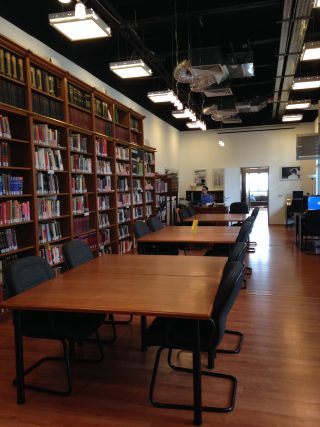I spent my third day in Budapest visiting the Open Society Archives (OSA), which is affiliated with the Central European University. Most closely related to our work in Special Collections back at the U of A, this archive focuses on documenting human rights movements and human rights violations. They started the archive in 1995 and the University was founded in 1991. Their facility includes an exhibit and event space, as well as a classroom or meeting room space. They have over 14 linear kilometers of collections, which they store in climate controlled facilities, as we do for our department.
Similar to our focus on collaborating with our faculty and students to encourage them to use our collections as part of their class work and research, at the OSA they too partner with faculty and provide hands-on learning opportunities for students through internships and classroom engagement.
The Fulbright Commissioners conference began in the afternoon, and I met the commissioners from a number of European countries. That evening we attended a reception at the U.S. Ambassador’s home, and I spoke with the commissioners about the Fulbright collections in our department, and our interest in expanding and adding to our holdings. I was consistently impressed by how much all of the commissioners knew about Senator Fulbright and our state of Arkansas. He and the state clearly hold a special place in their hearts.
The next morning I attended a session at their conference about data security [see An Archivist Abroad: Part 1]. The commissioners are grappling with how to comply with the new GDPR regulations, which go into effect in May. How they respond will impact the future archiving of their records, as they may choose not to keep certain types of files to comply with the new security regulations.
The day ended with a bus tour of the city and a sunset boat trip along the Danube. It was a wonderful way to meet and talk more with the commissioners and their stakeholders who joined us. There’s a definite excitement about Arkansas and the University’s interest in further developing our Fulbright efforts to preserve the legacy of this important program.


